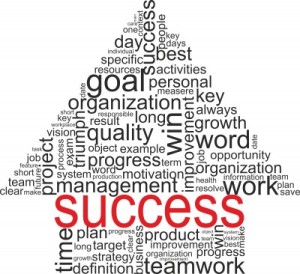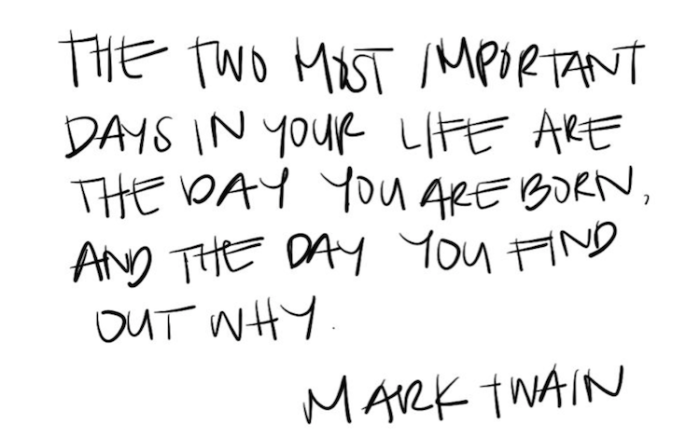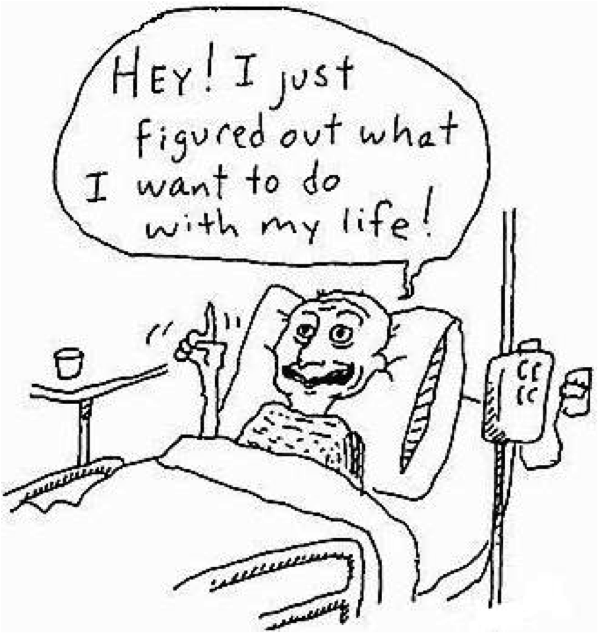
A blog I follow, Let’s Reach Success, inspired me with a great post on the importance of having a good routine, consciously creating it and then being disciplined in staying with it. So, once again, I am motivated to craft a different morning routine. I am hoping that, like quitting smoking, this time it will stick. So what I have come up with is this:
- 6:30 – 7:30 Family time
- 7:30 – 7:45 Meditate
- 7:45 – 8:00 Plan the day
- 8:00 – 8:45 Walk/Exercise – 45 minutes
- 8: 45 – 9:30 Write
Then on to the other important work I need to do during the day. So here I am, day 5, at the writing phase. So grateful.
I was reading some of my father’s journal that I rediscovered last weekend. In 1992 he started keeping a journal on the computer to both capture his thoughts and to learn how to become more computer savvy. He talks a few times about his “high energy state” and also trying to stay disciplined. This passage resonated with me:
“Sunday morning and about 10 below zero. My initial feeling this morning was that this was a waste of time, but on seeing my previous day’s work scroll by I realized that I have already gained a lot from the time I have spent. I have always had this problem, losing sight of the long range goal, becoming paralyzed by questioning, blocked by feelings of the futility of it all. Only when I have forced myself into a discipline that is focused on a consistent, repetitious process that to a large extent ignores any questioning have I been successful.”
—-From the journal of Fred Baker; February 27, 1994
It seems I share some of his tendencies – the high energy state, the flow of ideas, as well as the difficulty in sorting and prioritizing the ideas in order to execute. It is why Jim Collins’ Good to Great concept of a culture of discipline has occupied center stage on my whiteboard for the past 2 months. The idea: “sustained great results depend upon building a culture full of self-disciplined people who take disciplined action, fanatically consistent with the three circles of:
- That which you are deeply passionate about,
- That which you can be the best in the world at, and
- That which drives your economic engine.
So what needs to happen to sustain a new routine, make a necessary life change, or to push on with a project that can at times seem futile?
Idea and Opportunity Selection
Ideas and opportunities can be plentiful and many can be good, if not great. It can be difficult understanding where to prioritize and commit your resources. In the article The Opportunity Paradox, the authors discuss how capturing new growth opportunities is fundamental to strategy, innovation and entrepreneurship. The authors also recognize that opportunities have a complexity that few people recognize in that there are two parts of the process: opportunity selection and opportunity execution.
There are many good nuggets of information in this article, but one of the most relevant is that often “innovation efforts move so quickly to identify a solution that they have to cycle back to figure out what problem they are actually solving. (page 30).”
In my work, I have often found that there is this reluctance to spend the time defining the larger problem or challenge being faced. The importance of the discussion phase and discovery period isn’t fully recognized or seen as being part of the real work.
We need to ask: what is the desired result? What is the greater goal? Is it in alignment with the strategic plan? Is there a plan? This process can be applied to both the personal and professional spheres. Don’t march diligently toward the wrong goal.
We as Americans (humans?) don’t do this very well. Our culture of action, of get it done! goes against what our brains find satisfying, what our shareholders think they want, of feeling productive by checking things off the big list. Discussing and refining can feel like wasted time. If you are going full speed down the wrong road, well…you’ll reach a destination, but not the one you intend. So it is important to build in the time to sort out what it is you are trying to achieve, your intended results and how they align with the greater goal. This is an important piece of the work. It always takes longer than expected.
Accountability
Marshall Goldsmith, a well-known executive coach and thought leader understands how difficult it is to adhere to and sustain changes we want to make in our lives. At a recent lecture, he shared with the audience one of his tools for keeping himself accountable to his goals. He pays someone to call him every night and ask him a series of questions that he developed, for the things that he finds important in his life. They include questions about exercise, care-taking his relationships, among other items. 33 questions in all.
He knows himself, and has built this method of staying accountable to his goals. Deciding what’s important, determining how to measure it, and then following up by reporting on this regularly – it keeps the priorities top-of-mind and forces you to answer to what you say you are going to do.
Another example of the importance of accountability and discipline: “What I got from Abbott was the idea that when you set your objectives for the year, you record them in concrete. You can change your plans through the year, but you never change what you measure yourself against. You are rigorous at the end of the year, adhering exactly to what you said was going to happen. You don’t get a chance to editorialize. You don’t get a chance to adjust and finagle, and decide you really didn’t intend to do that anyway, and readjust your objectives to make yourself look better. You never focus on what you’ve accomplished for the year; your focus on what you’ve accomplished relative to exactly what you said you were going to accomplish – no matter how tough the measure.”
—George Rathman, in Good to Great (p 122)
Reflect and Appreciate
Ok, that’s done… on to the next task. Wait! Take a moment. While it’s great to always look at the horizon, take a moment to look back at the shore. A project completed – that’s worthy of a moment of savoring and reflection. Enjoy having completed something, and if applicable, what would you do differently next time? Use this as positive momentum to continue learning while living the value of excellence (not perfection). Now…on to the next thing.
I read somewhere once, that an antidote to this feeling of our lives moving so quickly is to meditate. The point: mindfulness. Taking moments during the day to appreciate a success or a special moment fuels a feeling of satisfaction and contentment with our lives and balances out the other influences: stress, dissatisfaction, chaos, negativity.
Application
These ideas can be applied in both the business and personal arenas, for large and small scale projects, for families, long and short term.
- Start with one thing. Do you have a clear vision or strategy? If not – start the process.
- From the strategy, what are the action items, who’s responsible, when are the due dates, and who is checking? Have you built in measurement and accountability measures that make sense and support the company strategy? If not – have the necessary conversations and communicate.
- Build in a process of after action review. Include both what you would do better or differently next time and what you did well. Communicate this to those that were part of the project. Make it a part of your culture to both celebrate and continually improve.
A word about perfection and excellence
Life, business, strategy, building – it’s all messy. It’s necessarily iterative, and this can be uncomfortable, confusing and exciting. And, like quitting smoking, it can take some time to sustain the change of habit but the long term payoff makes it worth the effort. I’m a big proponent of focusing on excellence rather than perfection. So – how to make sense of it all? Be disciplined in your thought and action, hold yourself and others accountable, reflect, adjust, and celebrate!
Excellence is an art won by training and habituation. We do not act rightly because we have virtue or excellence, but we rather have those because we have acted rightly. We are what we repeatedly do. Excellence, then, is not an act but a habit. —Aristotle
Resources


